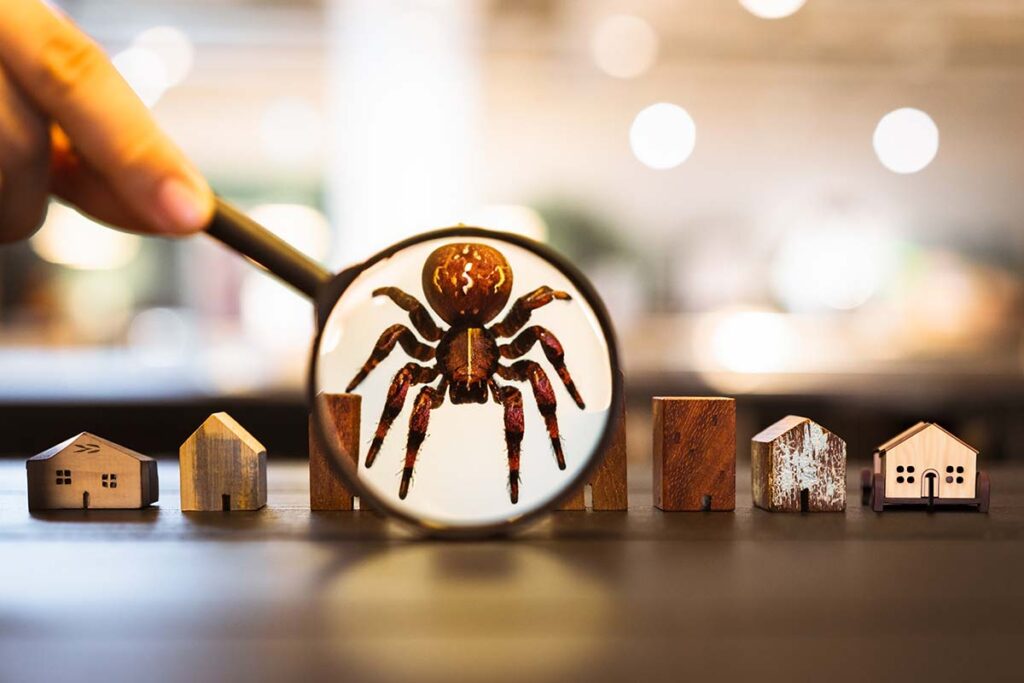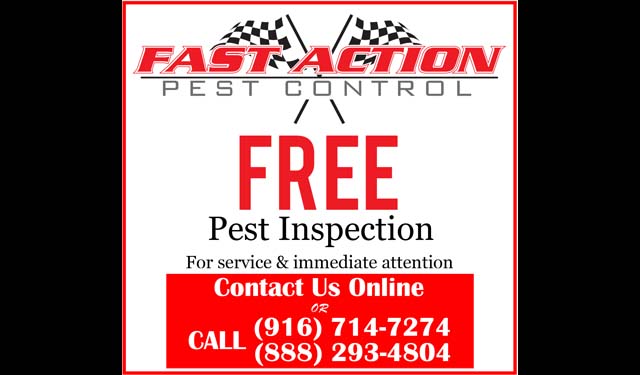Why a Pest Inspection is Crucial for Your Real Estate Investment.
In this blog post, we’ll explain exactly why a pest inspection should be at the top of your to-do list when it comes to purchasing or managing a property.


Why a Pest Inspection is Crucial for Your Real Estate Investment.
Are you thinking about investing in real estate? Don’t make the mistake of overlooking one important aspect: pest inspection. Why is this crucial, you ask? Well, pests can ruin your investment in countless ways – from damaging the structure to reducing property value and scaring off potential tenants. In this blog post, we’ll explain exactly why a pest inspection should be at the top of your to-do list when it comes to purchasing or managing a property. Trust us, taking care of pests before they become a problem will save you time and money in the long run!
Introduction to Pest Inspections
Pests can cause a lot of damage to your home, and they can be difficult to get rid of once they’ve taken up residence. That’s why it’s so important to have a pest inspection before you finalize your real estate purchase.
A pest inspection will check for evidence of current or past infestations of common household pests, including termites, ants, cockroaches, rodents, and bedbugs. The inspector will look for signs of pest activity, such as droppings, shed skin, tunnels, and damage to wood or other materials. If evidence of pests is found, the inspector will make recommendations for pest control and management.
Having a pest inspection is crucial for ensuring that your real estate investment is protected against potential damage from pests. Be sure to ask your real estate agent about scheduling a pest inspection as part of the home-buying process.
Benefits of Carrying Out a Pest Inspection
Carrying out a pest inspection before you buy a property can save you a lot of money in the long run. Here are some of the benefits of doing so:
1. You’ll be able to identify any potential pest problems early on, before they have a chance to cause serious damage to your home.
2. Pest inspectors are trained to spot signs of infestation that you may not notice yourself, meaning you can nip the problem in the bud before it gets out of control.
3. If there are any active pest infestations present, your pest inspector will be able to recommend the best course of treatment to get rid of them quickly and effectively.
4. Having a pest inspection report on hand when selling your property will reassure potential buyers that the property is free from any current or future pest problems.
5. In some cases, your lender may require a pest inspection report before they approve your mortgage loan for the purchase of a property.
Types of Pests to Look Out For
There are many different types of pests that can cause problems for homeowners and real estate investors. Some of the most common pests include:
• Rodents: mice, rats, and squirrels
• Insects: ants, cockroaches, termites, and bedbugs
• Birds: pigeons and other nuisance birds
• Wildlife: skunks, raccoons, opossums, and snakes
A pest inspection is important because it can identify these pests and help you develop a plan to get rid of them.
Potential Problems Caused by Pests
Pests can cause a number of problems for your real estate investment. Here are some of the most common problems that can be caused by pests:
- Damage to property: Pests can cause damage to the structure of your property, as well as to any furnishings or personal belongings that you have inside.
- Health risks: Some pests can transmit diseases to humans, which can put you and your family at risk.
- Financial loss: If you have to pay for repairs or replacements because of pest damage, this can eat into your profits from the investment.
How to Prepare for a Pest Inspection
If you’re purchasing a property, it’s important to have a pest inspection done before finalizing the sale. A pest inspection will identify any current or potential pest problems so that you can make an informed decision about buying the property. Here’s what you need to know to prepare for a pest inspection:
1. Schedule the inspection for a time when you can be present. This way, you can ask questions and get clarification on anything that you don’t understand.
2. Prepare a list of questions to ask the inspector. Some good questions to ask include:
-What types of pests have been found on the property?
-Are there any active infestations?
-What areas of the property are most susceptible to pests?
-What can be done to prevent pests from entering the home?
-What kind of damage do pests typically cause?
-How much will it cost to address the current pest problem and prevent future problems?
3. Make sure that all cracks, holes, and other potential entry points are sealed before the inspection. This will help the inspector get a better idea of the potential pest problems on the property.
4. Take note of any areas where you’ve seen pests or evidence of pests. Be sure to point these out to the inspector so that they can take a closer look.
5. Be prepared to discuss your findings with the inspector and decide on a course of action. Depending on the severity of the pest problem, you may decide to move forward with the purchase and negotiate a lower sale price, or you may choose to back out of the transaction altogether.
By following these steps, you’ll be able to ensure that you’re making an informed decision about buying a property by knowing what pest problems exist before signing any contracts.
How to Find a Good Pest Inspector
When you’re thinking about purchasing a home, it’s important to factor in the potential for pests. no matter how clean or well-maintained a home may appear, there could be an infestation lurking beneath the surface. This is why it’s crucial to have a professional pest inspector come and take a look before you make an offer on a property. Here are some tips on how to find a good pest inspector:
1. Get recommendations from people you trust. Talk to your real estate agent, your friends and family, and anyone else who has recently purchased a home. They may be able to put you in touch with a great pest inspector that they used.
2. Do some research online. Once you have some names, read online reviews to get an idea of what other people’s experiences have been like. Look for an inspector who has experience with the type of pests that are common in your area.
3. Ask for references. Once you’ve narrowed down your options, be sure to ask each inspector for references from past clients. This will give you an idea of what it’s like to work with them and whether they’re likely to do a thorough job inspecting your future home.
The Cost of Pest Inspections
Pest inspections are a critical part of the home-buying process, as they can identify potential problems that could lead to structural damage or health hazards. While the cost of a pest inspection may seem like an unnecessary expense, it is typically a very small price to pay in comparison to the overall cost of the home. buyers should always request a pest inspection report from their real estate agent before making an offer on a home.
Conclusion
In conclusion, conducting a pest inspection is necessary for any real estate investment. It may be time-consuming and costly, but it will save you from the financial and emotional damage of pest infestations in the future. A certified professional can provide you with reliable advice, help identify potential risks and make sure your home purchase is protected in all aspects. With their expertise, you can avoid major costs down the road and secure a more confident purchase that provides peace of mind for years to come.


